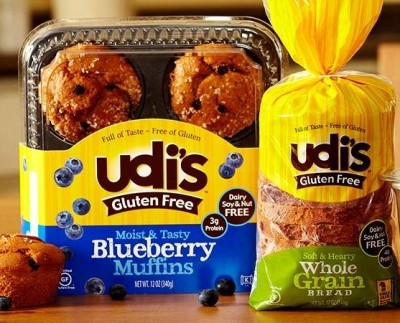HARTBEAT VISTA VIDEO: We thought gluten-free was a fad... We were wrong
This content item was originally published on www.bakeryandsnacks.com, a William Reed online publication.
Discussing these questions on the Hartbeat Vista multimedia platform, Hartman Group SVP of business development Shelley Balanko said: “Admittedly when we first weighed in, we dismissed gluten-free as a passing fad that was indicative of an enduring and underlying interest in digestive health.
“Well, time has proven that we were wrong… and we were right. We were wrong about gluten-free foods being a passing fancy, but we’ve been right about consumers’ enduring quest for digestive health, as it is deemed foundational to their overall wellness”
She added: “Consumers’ unwavering focus on digestion is evidenced by the gluten-free frenzy, plus the success of the Greek yogurt category and strong performance of Kefir and other categories that promote a healthy gut.”
As to her predictions for the future, she said: “We expect gluten-free product category growth to continue… Aside from managing celiac disease, mainstream motivations for purchase include overall health and wellbeing, digestive health and weight loss.”
The rise and rise of gluten free
According to a January 2013 consumer survey by The NPD Group, 30% of American adults say they are trying to reduce or exclude gluten from their diets.
Meanwhile, the (many experts would argue erroneous) belief that a gluten-free diet will help you lose weight and improve your health even if you don’t have celiac disease, continues to gain momentum, according to a Packaged Facts consumer survey of US adults conducted last summer.
Asked why they bought gluten-free products, 35% said gluten-free products were "generally healthier", 27% said "to manage my weight", 21% said that gluten free products are "generally low-carb" and 15% said a member of the household had a gluten or wheat intolerance.
Just 7% said they were buying them because a household member had celiac disease.
An explosion of gluten-free items on menus at limited service restaurants (LSRs)

Meanwhile, a recent analysis of orders from GrubHub’s database of 20,000+ restaurants in more than 500 US cities showed a significant increase in gluten-free takeout orders, while Technomic claims there has been an “explosion of gluten-free items” on menus at limited service restaurants (LSRs) in the past two years.
In its January 2013 ‘Healthy Eating Consumer Trend Report’, Technomic said: “Essentially non-existent as a health claim on mainstream menus just two years ago, there are now hundreds of LSR menu items described as gluten-free.

“Once promoted as a menu alternative to the small segment of the population that suffers from celiac disease, gluten-free items are now positioned as simply better-for-you choices that are generally perceived by consumers to be lighter fare.”
Click here for all our latest news on gluten-free trends.
Click here to get Shelley’s take on consumers and GMO labeling.
Click here to watch more videos on the Hartbeat Vista platform, which features interviews with consumers, trend watchers and analysts at Hartman Group on everything from coconut flour to eating alone, food allergies and online shopping habits.










